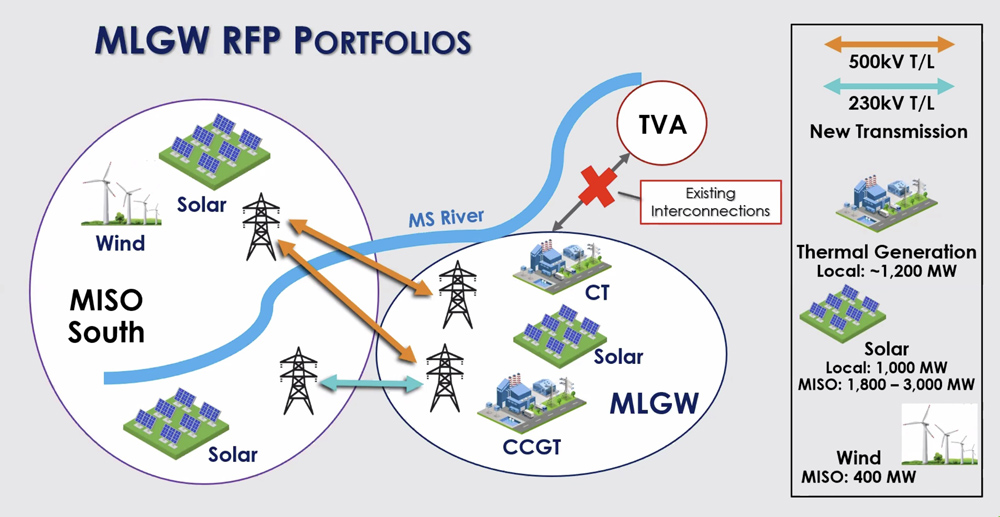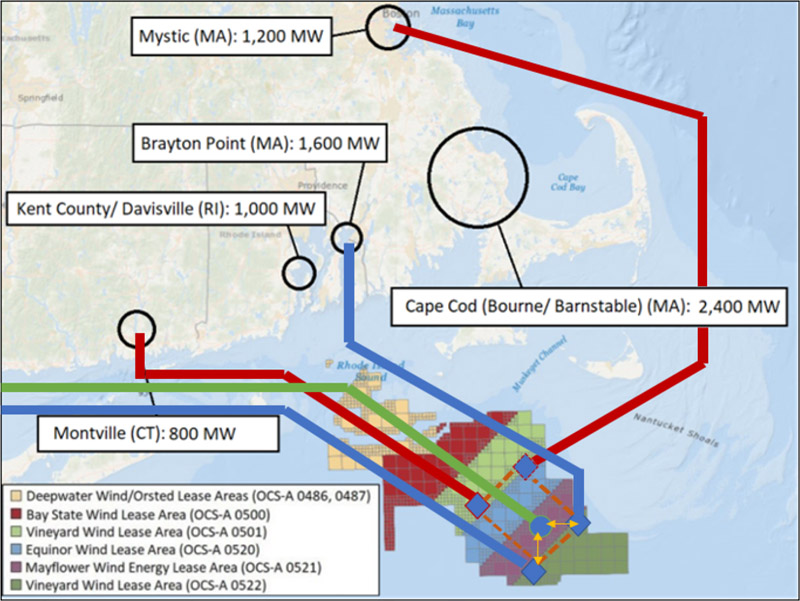Brazos Electric Power Cooperative has offered to pay ERCOT as much as $1.44 billion in its proposed exit plan from Chapter 11 bankruptcy and settle its dispute with the Texas grid operator over astronomical wholesale power prices in the wake of the February 2021 winter storm.
Under the terms of a settlement agreement and reorganization plan filed Thursday with the U.S. Bankruptcy Court for the Southern District of Texas, Brazos will make an initial payment of $1.15 billion. It will then make annual payments to ERCOT of $13.8 million for 12 years and contribute a portion of the sale of its generation assets, about $116.6 million, to fund payments through the grid operator to market participants still short from market transactions during the week of the storm (21-30725).
The initial lump sum will be used to help replenish a fund ERCOT used to settle transactions following the storm and to finance an initial distribution to market participants that joined in the settlement.
ERCOT had no comment on the filings, keeping with its practice of not remarking on legal matters. However, it told stakeholders in a market notice that it has not yet reached a final agreement on “certain important provisions in the plan.” It also noted that both the plan and a disclosure statement are working drafts and will be amended to reflect ongoing discussions and negotiations with Brazos and other key stakeholders.
The bankruptcy court has scheduled a hearing for Sept. 14 to determine whether the plan meets U.S. Bankruptcy Code requirements. Assuming confirmation, Brazos will then begin soliciting votes, due Oct. 27, from ERCOT and market participants on the agreement. Another hearing has been scheduled for November to consider final approval of the settlement and reorganization plan.
Brazos filed for bankruptcy in March 2021 after receiving an invoice from ERCOT for $2.1 billion in market transactions that it was short the market, with payment due in a few days. The cooperative responded with a force majeure event letter and by disputing the charges. (See ERCOT’s Brazos Electric Declares Bankruptcy.)
The co-op then opened an adversary proceeding against ERCOT in August 2021, challenging the Public Utility Commission’s emergency orders directing the grid operator to set prices at their $9,000/MWh limit to reflect the scarcity in the market. It sought to reduce the short-pay claim by at least $1.1 billion, the amount it attributed to ERCOT’s administrative adjustment.
Wholesale prices remained at their maximum for four straight days after the grid came within minutes of total collapse. ERCOT also increased ancillary fees to more than $25,000/MWh as it desperately sought to balance demand with load after a devastating loss of generation that led to long-term blackouts.
“The consequences of these prices were devastating to Brazos Electric and its members,” the cooperative said in its restructuring plan.
The adversary proceeding trial began earlier this year but was suspended after several weeks to allow the parties to mediate the dispute. (See ERCOT, Brazos Agree to Mediation in Dispute.)
ERCOT has said that almost all of the Brazos short-pay claim should be entitled to priority treatment as an administrative expense claim in the bankruptcy case. The short-pay amount has been revised to $1,886.6 billion, which will be fully recovered.
When Brazos comes out of bankruptcy, it has agreed to sell its generating assets, which total about 4 GW of capacity, and transition from a generation and transmission cooperative to a transmission and distribution cooperative. All of Brazos’ generation is natural gas-fired.
Under the agreement, Cliff Karnei, Brazos’ general manager since 1997, and three other members of the cooperative’s senior management will leave their jobs by March 2023. In addition, Karnei and two others will be barred from working for any ERCOT market participant if they’re acting as a financial counterparty to the grid operator.
Karnei resigned from ERCOT’s Board of Directors last year shortly after the storm hit, ending two decades of service on the board.

